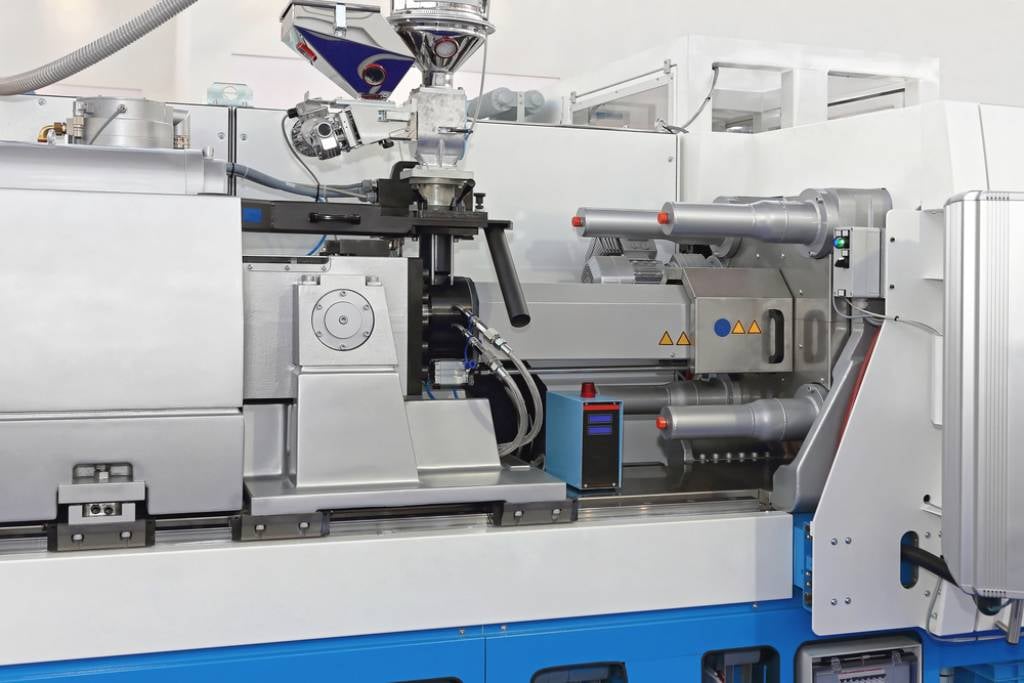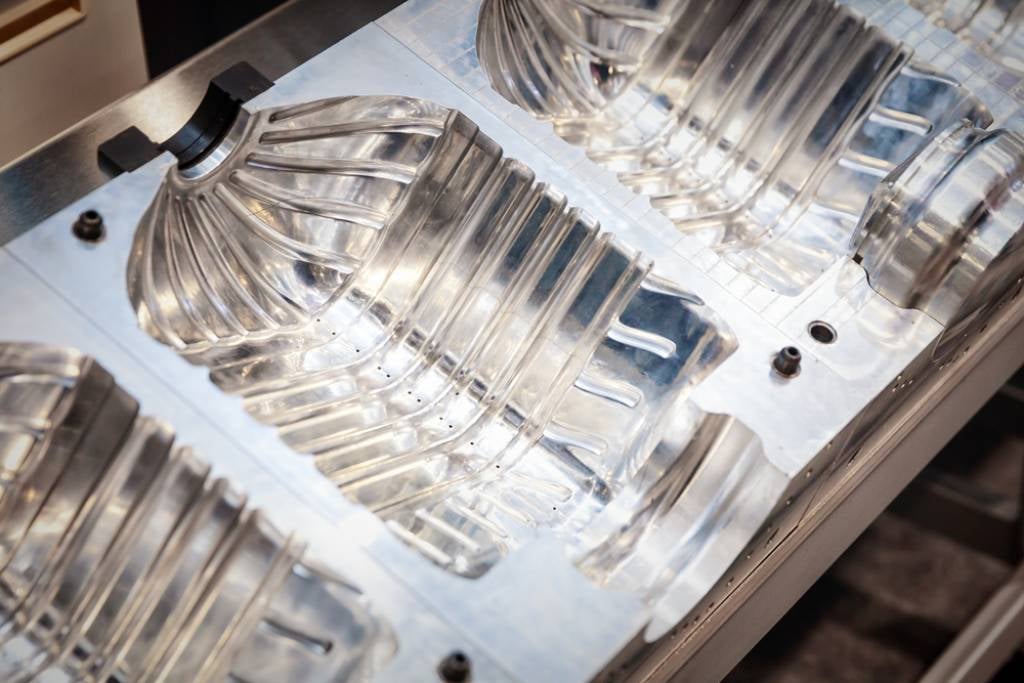
With the continuous advancement of technology and the rapid development of the Internet of Things (IoT), we are undoubtedly smart manufacturing. Some may see this as a shift away from previous production frameworks like lean manufacturing. However, both techniques have principles that align.
What is Smart Manufacturing?
Smart manufacturing, also referred to as Industry 4.0, is the use of advanced digital technologies to enhance and streamline manufacturing. This can include integrating digital technology, smart computing, automation, and big data with physical production processes like plastic injection molding.
The Industrial Internet of Things (IIoT) facilitates real-time data collection from different stages of manufacturing in smart factories. With artificial intelligence (AI) and machine learning, analyzed data can uncover valuable insights, make predictions, and enable autonomous decision-making.
How Does Smart Manufacturing Work With Lean Manufacturing Principles?
Lean manufacturing emphasizes the optimal use of resources to minimize waste and improve productivity in the supply chain. Smart automation manufacturing in plastic injection molding uses control systems and machinery to mechanize the entire process. These improvements align with the fundamental objectives of lean manufacturing.
Automation can effectively handle duties like loading raw materials into machines, moving components within the machinery, and extracting finished molded parts. These automated smart manufacturing systems can regulate various aspects of the molding process, such as temperature, pressure, and timing.
This ensures that you maintain consistency and quality throughout the manufacturing process. Furthermore, AI can analyze data collected from various processes and optimize the relevant parameters in real-time.
Smart manufacturing technology can build on these five lean manufacturing principles:
1. Identify Value
You ascertain the elements that hold value for your customers regarding your product or service. In this context, value refers to something customers are willing to invest in. Advanced data analytics to offer valuable insights into customer behavior and preferences.
2. Map the Value Stream
During this step, the goal is to use the customer's perceived value as a benchmark. You must identify all the activities that contribute to this value. Wasteful activities are ones that don't add value to the final product.
Smart manufacturing technology like IoT sensors can gather comprehensive data on each stage of the plastic injection molding process. This valuable information can be critical in identifying areas where waste occurs. You will be able to make targeted improvements to enhance productivity and reduce costs.
3. Create Flow
Once you eliminate waste from the value stream, you must establish a seamless flow in the remaining process steps. This often requires re-engineering the production process, resulting in reduced interruptions, delays, and wait times. Real-time monitoring and predictive modeling techniques can effectively mitigate bottlenecks and minimize downtime.
4. Establish a Pull System
This means you only manufacture what the customer wants when the customer wants it. This helps to prevent overproduction—a common form of waste in traditional manufacturing. Smart manufacturing facilitates more accurate demand forecasting and responsive production scheduling with predictive modeling.
5. Seek Perfection
The final principle of lean thinking involves a commitment to continuous improvement. In your pursuit of process optimization, it is crucial to prioritize the enhancement of efficiency, cost reduction, and elevating customer satisfaction. Again, real-time data from smart manufacturing can help with continuous improvement.

Benefits of Smart Manufacturing Technology in Plastic Injection Molding
Below are some key benefits of using smart manufacturing technology in plastic injection molding.
- Increased Efficiency: Smart manufacturing enables real-time monitoring and control of the manufacturing process. This advanced approach enhances efficiency, productivity, and operations.
- Improved Quality: Using real-time data gathered from IoT sensors empowers manufacturers to closely monitor processes and make immediate adjustments. This will maintain product quality by preventing potential defects or deviations in the manufacturing process. It can reduce imperfections like warping, burns, and sink marks.
- Cost Reduction: Predictive maintenance practices mitigate the risk of expensive equipment failures. Automation can also decrease labor expenses. Enhanced productivity and minimized wastage result in reduced operation costs. Moreover, employing cloud platforms for data analysis can decrease IT infrastructure expenses.
- Flexibility and Custom Manufacturing: Implementing advanced data analytics and automated systems in manufacturing can bring about enhanced flexibility in production processes. This enables manufacturers to swiftly transition between various products, leading to increased responsiveness in meeting changes in market demand.
- Supply Chain Optimization: Smart manufacturing improves supply chain planning and management by providing real-time manufacturing data. This can reduce inventories and lead times, leading to more efficient operations.
- Sustainable Production: Smart manufacturing can effectively mitigate the environmental impact by reducing waste and energy consumption. You will use less raw materials during production.
- Improved Worker Safety: Automating hazardous tasks and implementing predictive maintenance measures are crucial in creating a safer work environment. Automating these tasks reduces potential accidents and injuries.
Work with Experts in Plastic Injection Molding
At RCO Engineering, we have honed our expertise in delivering plastic injection molding solutions for various industries. We work with defense, aerospace, and automotive brands to deliver high-quality plastic molded parts.

Comments